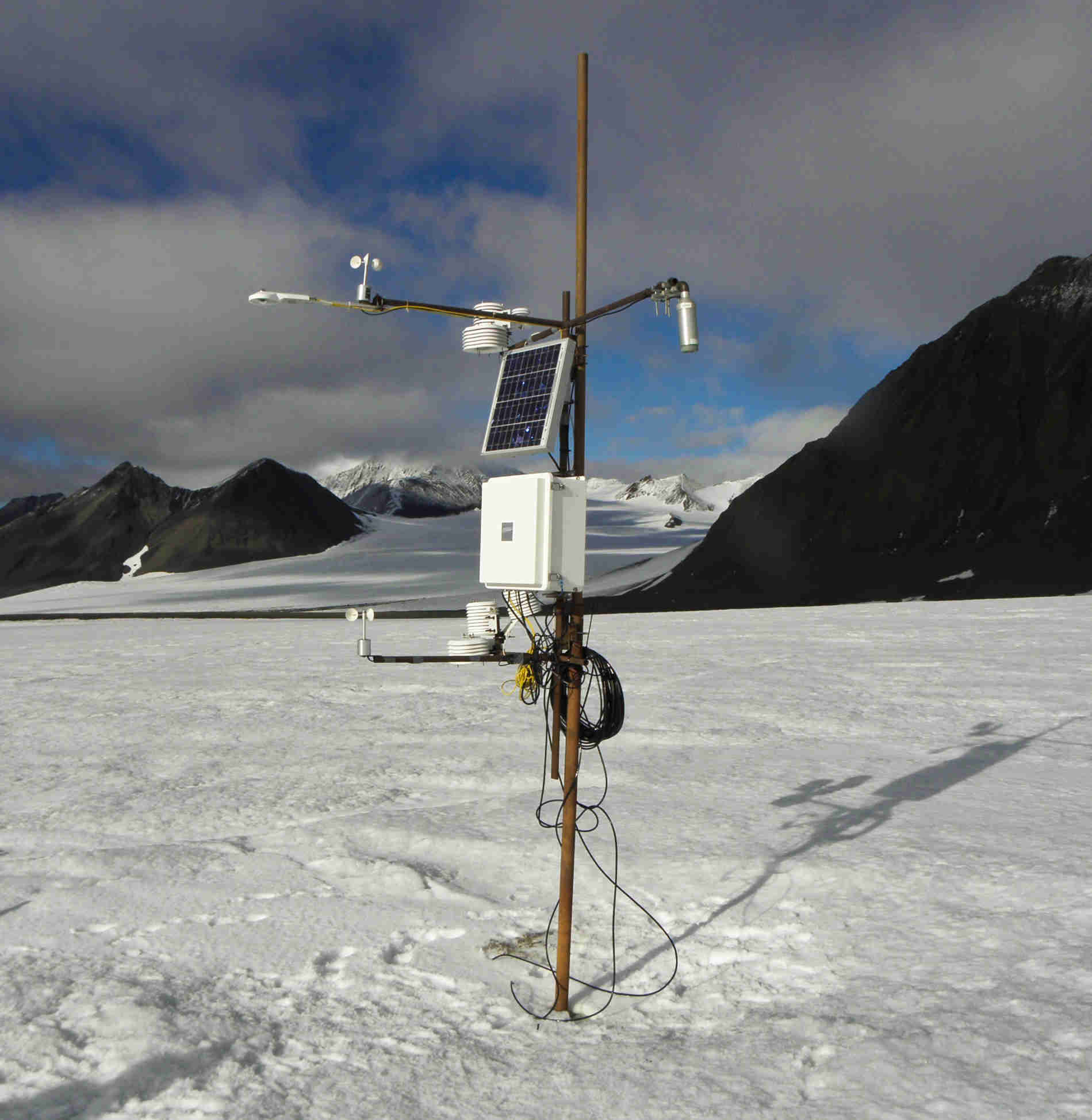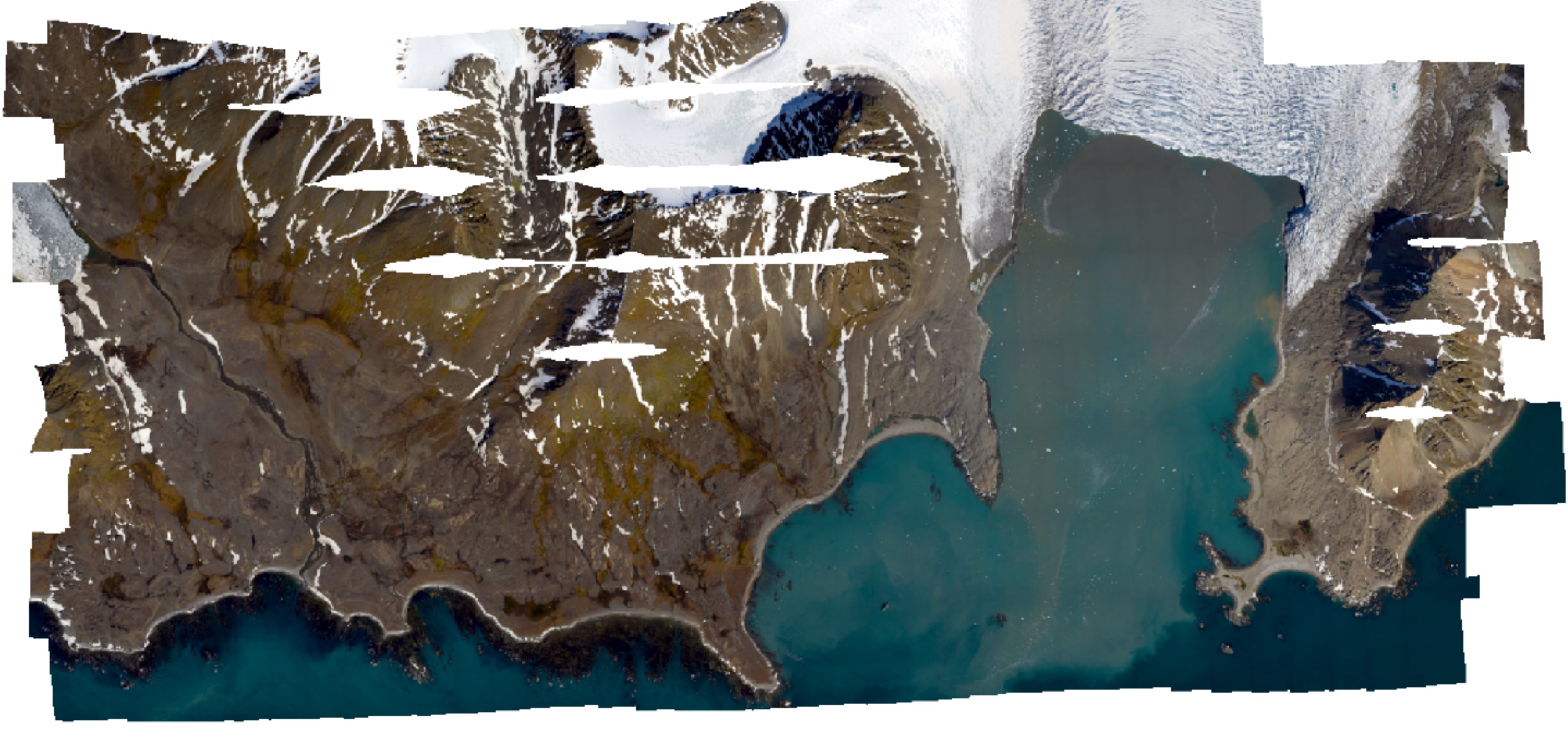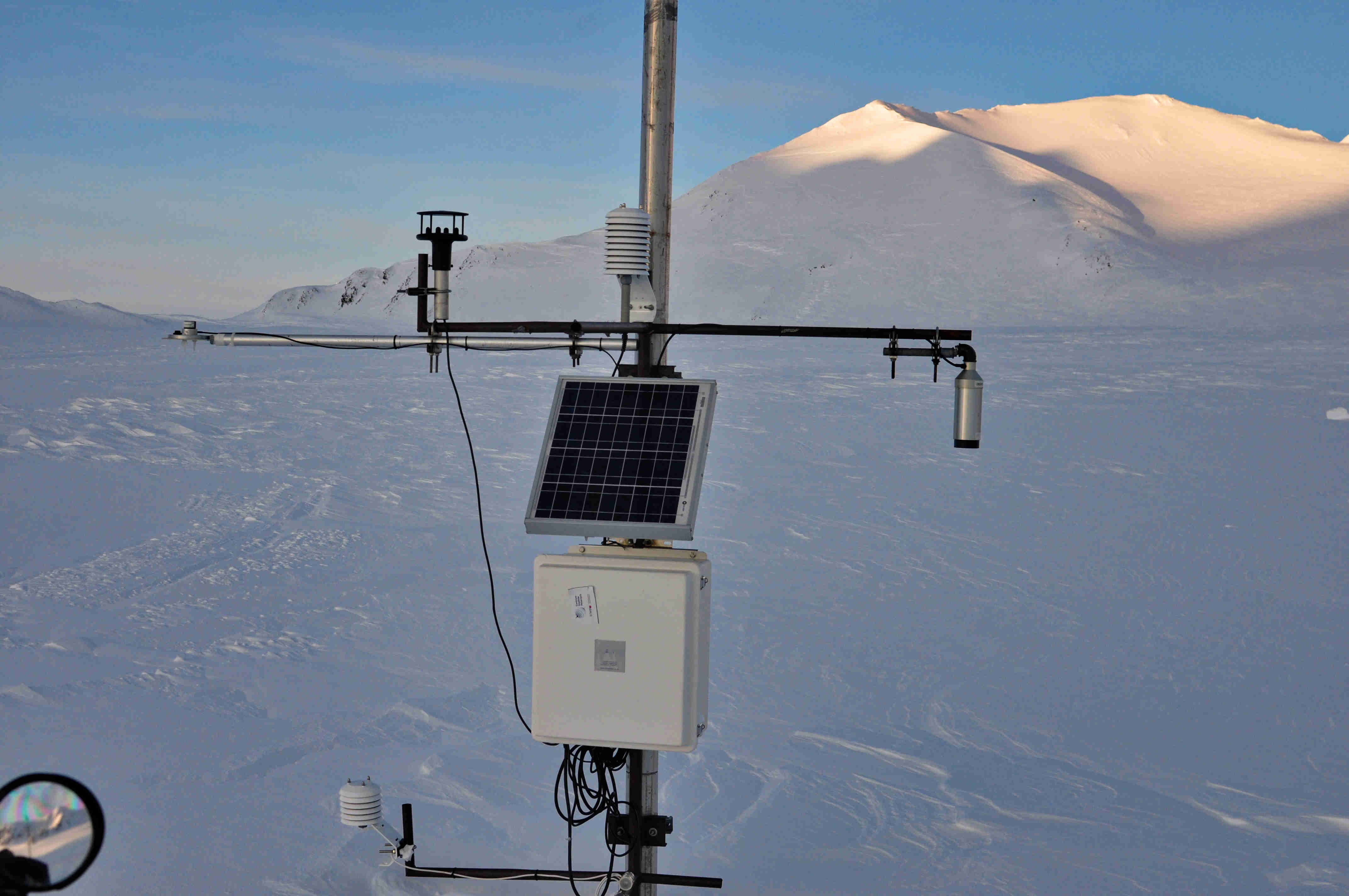irregular
Type of resources
Topics
Keywords
Contact for the resource
Provided by
Years
Representation types
Update frequencies
status
-

Upwelling shortwave flux in air measurements from AWS located on the Werenskioldbreen. The sensors are installed on a mast that is mounted in the glacier ice. During the season, the distance between the glacier's surface and the sensors increases. The station is serviced at least once a year between March and April.
-

Wind speed measurements from AWS located on the Werenskioldbreen. The sensors are installed on a mast that is mounted in the glacier ice. During the season, the distance between the glacier's surface and the sensors increases. The station is serviced at least once a year between March and April.
-

High-resolution orthomosaic derived from aerial images captured in 2020 over Hornsund, Svalbard by Dornier aircraft. The spatial resolution of the orthomosaic is 0.0843 m. Aerial images for the area were provided by the SIOS through a dedicated call of proposals (https://sios-svalbard.org/AirborneRS). The dataset is the supplement to the paper: Błaszczyk, M.; Laska, M.; Sivertsen, A.; Jawak, S.D. Combined Use of Aerial Photogrammetry and Terrestrial Laser Scanning for Detecting Geomorphological Changes in Hornsund, Svalbard. Remote Sens. 2022, 14, 601. https://doi.org/10.3390/rs14030601
-
Since 2010, continuous monitoring of the front zone of the Hansa Glacier with the use of Canon Eos 1000D photo cameras has been carried out (timelapse). Pictures in different periods of time were taken by 3 different cameras. Two cameras (106 and 107) were located on the Fugleberget slope and one (601) on the Baranowskiodden. The periods for which data are available and the interval of taking pictures are shown in Appendix 1.
-

Relative humidity measurements from AWS located on the Werenskioldbreen. The sensors are installed on a mast that is mounted in the glacier ice. During the season, the distance between the glacier's surface and the sensors increases. The station is serviced at least once a year between March and April.
-

Downwelling longwave flux in air measurements from AWS located on the Werenskioldbreen. The sensors are installed on a mast that is mounted in the glacier ice. During the season, the distance between the glacier's surface and the sensors increases. The station is serviced at least once a year between March and April.
-
The database contains irregular meteorological data collected from the Hans Glacier (Hansbreen) in the years 2007-2017 as part of the polar expeditions of the University of Silesia in Spitsbergen / Svalbard. Data from three automatic weather stations. Measured elements: air temperature, air humidity, wind direction, wind speed, elements of radiation balance, others.
-

The internal structure of glaciers evolves primarily due to their thermal state, which is influenced by ongoing climate change. Radio-echo sounding is a technique that indirectly identifies water-saturated temperate ice (W-STI) and water-free ice (W-FI) within glaciers. A novel automatic image processing method based on local binarization has been developed to improve the accuracy and efficiency of identifying these layers. Applied to the Arctic glacier Hansbreen from 2007 to 2021, this technique revealed that the glacier’s internal structure evolved from a two-layer system to a nearly homogeneous structure composed mainly of temperate ice (Kachniarz et al. 2025). The dataset contains raw GPR data from 2007 - 2021 taken in the Hansbreen ablation zone used to identify the glacier's internal structure. The profiles are divided into two sections: upper and lower areas. The upper area includes GPR profiles intended to replicate the 2003 GPR profile. The lower area consists of profiles shifted down the glacier, corresponding to the glacier’s movement since 2003. The profile lengths range from 0.7 km to 1.7 km, with the 2016 lower and 2021 upper areas, respectively. In the first season (2007), the GPR profiles were situated at altitudes between 188 and 216 meters above sea level, running transversely to the glacier’s movement. The glacier’s internal structure was examined using GPR system with unshielded 25 MHz, Rough Terrain Antenna (RTA) 30 MHz, and RTA 50 MHz antennas. Image processing Python script based on local binarization and processed image examples have been included in the dataset. See details in Kachniarz et al. 2025. The field data collection and/or processing received grant aid from: Svalbard Integrated Arctic Earth Observing System (SIOS) (SnowInOpt: SIOS Infrastructure Optimisation of the Cal/Val process for the snow research), European Commission Horizon Europe HORIZON-CL5-2024-D1-01-02 (LIQUIDICE: LinkIng and QUantifying the Impacts of climate change on inlanD ICE, snow cover, and permafrost on water resources and society in vulnerable regions) 101184962, the National Centre for Research and Development within the Polish-Norwegian Research Cooperation Programme (AWAKE2 project Pol Nor/198675/17/2013), Polish-Norwegian funding (AWAKE project PNRF-22-AI-1/07), Polish Ministry of Science and Higher Education (GLACIODYN No. IPY/269/2006), PolishNational Centre for Research and Development (SvalGlac project No. NCBiR/PolarCLIMATE-2009/2-2/2010), European Union 7th Framework Programme (ice2sea programme, grant no. 226375. Glaciological data were processed under assessment of the University of Silesia data repository within project Integrated Arctic Observing System (INTAROS, European Union’s Horizon 2020 Research and Innovation Programme—grant No. 727890). The work was supported by the Centre for Polar Studies (the Leading National Research Centre in Earth Sciences for 2014–2018) funding, No. 03/KNOW2/2014. Reference: Kachniarz K., Grabiec M., Wróbel K., Ignatiuk D. 2025: Glacier internal structure revealed by automatic image processing-powered classification of radar images. Applied Geomatics (in review)
-

Downwelling shortwave flux in air measurements from AWS located on the Werenskioldbreen. The sensors are installed on a mast that is mounted in the glacier ice. During the season, the distance between the glacier's surface and the sensors increases. The station is serviced at least once a year between March and April.
-

Wind direction measurements from AWS located on the Werenskioldbreen. The sensors are installed on a mast that is mounted in the glacier ice. During the season, the distance between the glacier's surface and the sensors increases. The station is serviced at least once a year between March and April.
 Centre for Polar Studies
Centre for Polar Studies